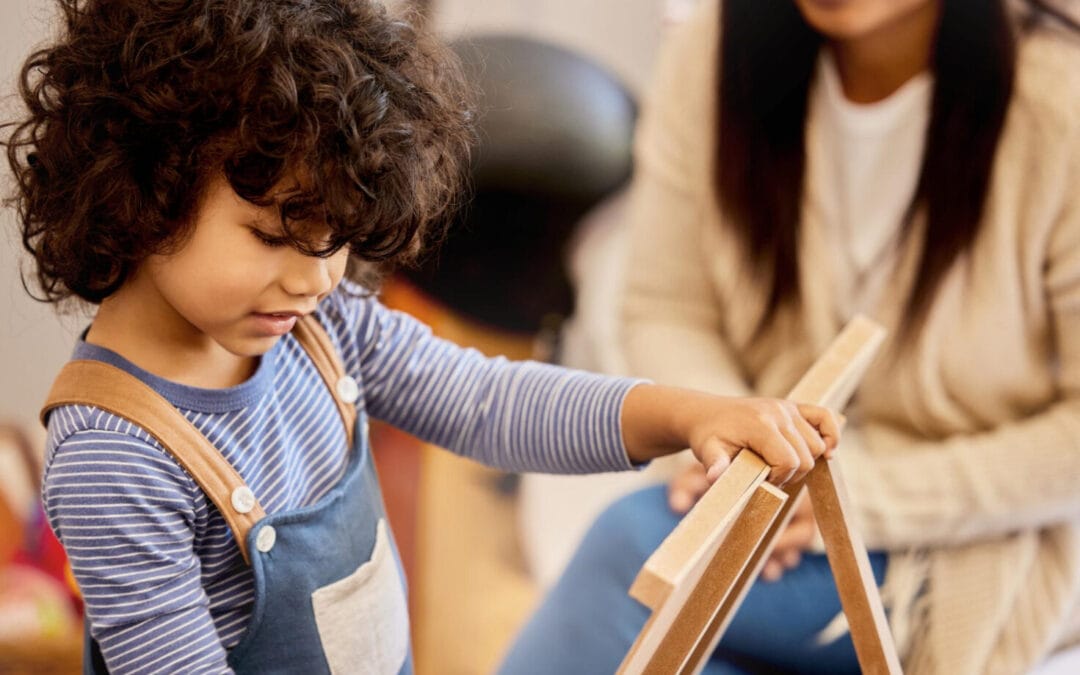Occupational therapy is a dynamic field that focuses on helping children develop the skills they need for everyday living. At Watch Me Shine, we understand the importance of making therapy both effective and enjoyable. By incorporating fun, playful activities, we aim to help children improve their abilities in a way that feels less like work and more like play.
Daily skills, such as dressing, eating, and even playing, require a mix of fine motor skills, gross motor skills, and sensory processing. These skills are essential for children to become more independent and confident in their daily lives. Our occupational therapists use creative methods to target these areas, turning ordinary tasks into engaging and beneficial activities.
Through occupational therapy, children can work on improving their hand-eye coordination, balance, and sensory processing in a supportive environment. By focusing on fun ways to enhance these skills, we make the learning process enjoyable and effective. These playful approaches not only help children develop necessary skills but also boost their self-esteem and eagerness to learn.
Why Occupational Therapy Is Important for Daily Skills
Occupational therapy is crucial for helping children develop the skills they need to perform daily activities. These skills include fine motor control, gross motor coordination, and sensory processing, all of which are essential for tasks like dressing, eating, and playing. Our occupational therapists focus on strengthening these areas to help children become more independent and confident.
Fine motor skills involve the small muscles in the hands and fingers, which are used for tasks like writing, buttoning clothes, and using utensils. Without strong fine motor skills, these daily tasks can become challenging. Occupational therapy provides exercises and activities to improve these skills, making everyday tasks easier for children.
Gross motor skills involve larger body movements, such as jumping, running, and climbing. These skills are important for physical activities and overall coordination. Through fun and engaging exercises, occupational therapists help children develop better gross motor skills, enhancing their ability to participate in physical play and sports.
Sensory processing skills allow children to interpret and respond to the world around them. This includes understanding how things feel, sound, look, and move. For some children, sensory processing can be overwhelming or confusing. Occupational therapy helps these children learn to manage sensory information, improving their ability to engage in daily activities comfortably.
Creative Activities for Improving Fine Motor Skills
Improving fine motor skills can be fun with the right activities. Here are some creative exercises that occupational therapists use to help children develop better fine motor control:
- Playdough Fun: Squeezing, rolling, and shaping playdough helps strengthen hand muscles and improve dexterity. Children can create shapes, letters, or even small sculptures, making the activity both fun and beneficial.
- Bead Stringing: Stringing beads onto a string or pipe cleaner enhances hand-eye coordination and precision. This activity can be adjusted for difficulty by using different sizes of beads, making it suitable for various skill levels.
- Pencil Control Games: Activities that involve drawing shapes, tracing lines, or coloring within the lines help children develop better pencil control. These exercises are essential for improving handwriting skills.
- Cutting Practice: Using safety scissors to cut out shapes from paper helps children develop hand strength and coordination. This activity can be made more challenging by using thicker paper or more intricate shapes.
- Buttoning Boards: Practice buttoning and unbuttoning on a fabric board helps children learn this important daily skill. It also strengthens the fine motor muscles required for dressing themselves.
By incorporating these creative activities, occupational therapists make learning fine motor skills enjoyable and effective for children. These exercises can be easily done at home, allowing parents to reinforce therapy progress in a fun and engaging way.
Fun Gross Motor Skill Exercises Children Will Love
Enhancing gross motor skills can be a blast for children when activities are playful and engaging. Here are some fun exercises that help improve coordination, balance, and strength:
- Obstacle Courses: Setting up an obstacle course with items to climb over, crawl under, and jump across helps children practice a variety of gross motor skills. Use everyday items like cushions, chairs, and ropes to create a course that challenges them physically.
- Animal Walks: Encourage children to move like their favorite animals. For example, they can hop like a frog, waddle like a duck, or crawl like a bear. These movements strengthen muscles and improve balance.
- Ball Games: Playing catch, kicking a soccer ball, or dribbling a basketball enhances hand-eye coordination and overall motor skills. These games can be done outside or in a spacious indoor area.
- Dance Parties: Turn on some music and have a dance party. Dancing is a fun way to improve coordination and rhythm while getting a good workout. Encourage different dance styles to keep it exciting.
- Jump Rope: Jumping rope is a great way to improve cardiovascular health and coordination. Start with basic jumps and progress to more challenging patterns as children become more skilled.
By incorporating these fun activities, children can develop their gross motor skills while having a great time. These exercises can be done in various settings, ensuring that children stay active and engaged.
How to Incorporate Sensory Play into Daily Routines
Sensory play is an essential part of occupational therapy as it helps children process sensory information more effectively. Here are some simple ways to include sensory play in everyday routines:
- Sensory Bins: Create bins filled with rice, beans, or sand and hide small toys or objects inside. Children can dig through the material to find the hidden items, engaging their sense of touch.
- Water Play: Activities like pouring, splashing, and playing with water toys help children explore different textures and temperatures. Water play can be done during bath time or with a water table.
- Cooking and Baking: Let children help with cooking and baking. They can knead dough, mix ingredients, or measure out supplies. These activities engage multiple senses, including touch, smell, and taste.
- Playdough and Slime: Working with playdough or slime provides a fantastic tactile experience. Children can squish, stretch, and mold these materials, which helps with sensory processing and fine motor skills.
- Nature Walks: Take children on walks in nature where they can experience different sights, sounds, and smells. Encourage them to touch leaves, listen to birds, and observe wildlife to enhance their sensory awareness.
Incorporating sensory play into daily routines helps children become more comfortable and adept at processing sensory information. These activities can be easily integrated into regular schedules, making them both practical and enjoyable.
Conclusion
Occupational therapy offers a multitude of benefits for children, enhancing their daily skills through fun and engaging activities. From improving fine motor control with creative tasks to boosting gross motor skills with playful exercises, occupational therapy is a crucial component of a child’s development. Including sensory play in everyday routines ensures that children are well-equipped to process the sensory information they encounter, making their daily experiences more enjoyable and manageable.
At Watch Me Shine, we are committed to helping children build independence and confidence. Through fun and effective therapy methods, we empower children to reach their full potential in a positive and nurturing environment. If you’re looking for an occupational therapist near you and want to learn how occupational therapy can benefit your child, contact us today to schedule a screening. Let’s work together to help your child shine bright!

